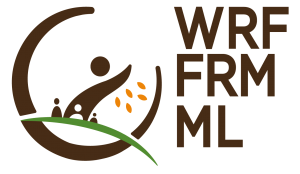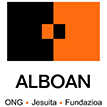Inades-Formation Tchad
NATIONAL ASSOCIATION SINCE March 1997
Key figures
3,742,784 beneficiaries
1,356 organizations supported
05 completed projects
Story
The story of Inades-Formation Tchad has two main stages:
- In November 1978, Inades-Formation Tchad moved to N’Djaména, the capital of the Republic of Tchad, as an NGO, Bureau Etablissement d’Inades-Formation international, headquartered in Abidjan;
- In March 1997, Inades-Formation Tchad adopted the status of a national non-profit association governed by Tchadian law n ° 027 INT / SUR of July 28, 1962 and article 7 of Decree n ° 165 / INT / SUR of August 25 1962. It was registered on June 10, 97 in the Register of Associations, year 1998, folio n ° 642 of the Ministry of the Interior, Security and Decentralization of the Republic of Tchad.
Inades-Formation Tchad has a National Directorate located in N’Djaména and an Antenna in Moundou.
The periods of instability in the country had adverse consequences on the progress of Inades-Formation Tchad’s activities immediately after its installation, forcing it first to temporarily move its headquarters to Maroua (North Cameroun), then to Moundou. from 1979 until 1983-1984, before returning to N’Djamena.
The unrest of February 2 and 3, 2008, which led to the looting of the premises of its N’Djamena Directorate, caused an interruption in the activities of the operational team for at least 6 months.
Projects

RSCIOSC Project
Inades-formation Chad authorities
1. The General Assembly
The General Assembly is the supreme organ of the association. It determines the general orientations of the activity of the Association and the objectives to be pursued.
2. The Executive Committee
The Executive Committee has the most extensive powers on behalf of the National Association in matters of administration. In particular, it has the powers of:
- Appoint the Director of the National Office and submit it to the approval of the President of the International Association
- Ensure the application of the decisions of the General Assembly;
- Approve the action plan;
- Approve the Annual Work Plan (PTA) and the corresponding budget;
- Read more ….
3. The Supervisory Board
The Supervisory Board has the following missions, among others:
- Monitor the achievement of the Association’s corporate purpose;
- Periodically monitor the Association’s expenses and suggest ways and means of optimizing the budget for overheads;
- Follow the management of the association by the Executive Committee and offer advice for improvement if necessary;
- Ensure the preservation of heritage;
- Ensure compliance with legal and regulatory requirements as well as the decisions of the bodies.
4. The National Office

Mr. TOGUEYAM Ivere
National Director

Mr. MAHAMAT Saleh
Financial and Administrative Manager

Mr. ROLTA Massingezbbe
Agricultural Advisor

Mr. MASRAYAM Neloumra
Community Microfinance Advisor

Mr MBAÏKAGDJIM Julien
Food Systems and Natural Resources Management Program Officer

Mr. ADOUM Djaram
Driver

Mr MAHAMAT Yassine
Driver

Mrs MANGUE Rosalie
Maid

Mr. ABDOULAYE Amir
Guardian
Contact Inades-Formation Tchad
Phone
(235) 22 51 70 24
Geographic address
BP 945 Ndjamena
Tchad
E-mail address
inadesformation.tchad@inadesfo.net








